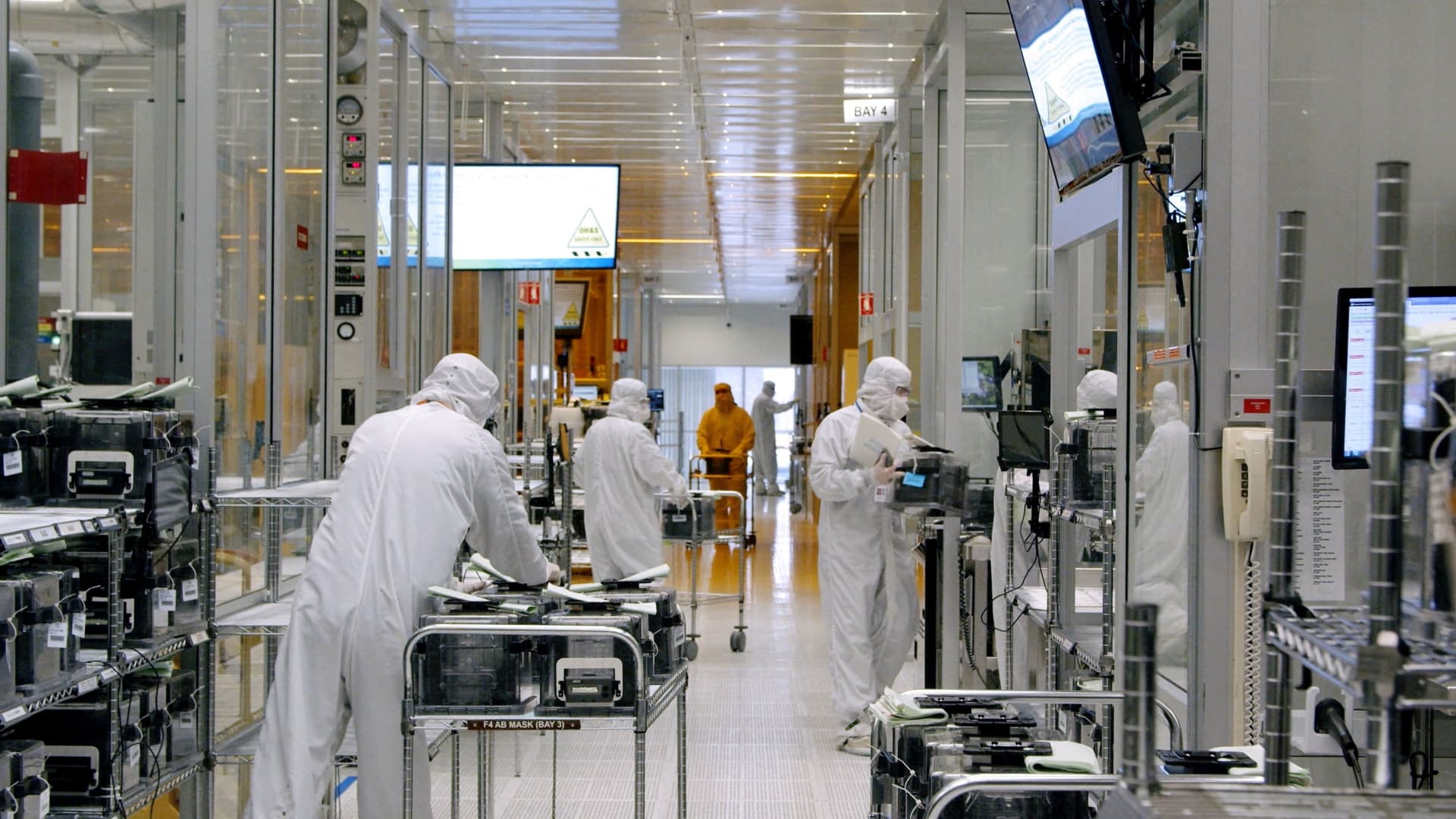Stay invested in chip stocks, says one fund manager — who reveals how he’s trading the sector

The MSCI Semiconductor Index , a benchmark for chip stocks that’s down by 43% this year, reflects the wider market’s sentiment toward a potential slowdown in economic growth. In such an environment, some investors have begun to ask whether it might be prudent to dump chip stocks in favor of companies in other outperforming sectors. Speaking to CNBC “Pro Talks,” Foord Asset Management’s Brian Arcese said despite the negative returns this year, it was better to stay invested in select companies than walk away from the sector. “Where valuations are, if it were a modest portion of the portfolio, then I would be comfortable owning them until such time that we had more news to make better informed decision,” said Arcese, who manages two funds overseeing $1.6 billion in assets. The portfolio manager revealed that he prefers holding on to Taiwan Semiconductor Manufacturing Company despite a 35% decline in the company’s shares this year. The chip sector has historically run in boom and bust cycles. During economic growth, consumer demand for computers, laptops, and phones outstrips semiconductor manufacturing capacity, making the sector very profitable. Conversely, chip prices crash during a recession, bringing down company revenues. Cyclicality means companies that allocate capital during a boom cycle in profitable areas tend to outperform when the economy comes out of recession. Arcese said this places emphasis on executive management while valuing chip makers. “We typically invest in what we feel are the market leaders that have generated the best returns through time and have the strongest management teams and the ability to continue to generate good returns,” he said. TSMC, which manufactures higher-end chips for Apple and AMD , has a “buy” rating from 23 out of 26 analysts covering the stock with an average price target of 600 new Taiwan dollars ( ($18.7) per share, indicating a 50% upside for the stock. Companies that specialize in manufacturing chips known as RAM are likely to face further challenges due to intense global competition, according to the industry. Idaho-headquartered Micron Technology reported higher supply levels as demand for chips slides in its latest quarterly report. Analysts at Mizuho Securities promptly downgraded Micron while Bank of America analysts said South Korea’s SK Hynix would “underperform.” Both firms make lower-end chips meant for industry and automobiles. Arcese also said that the decision by the United States to reduce its reliance on foreign chip manufacturing by passing funding to help promote domestic production facilities would help some chip stocks like Intel . “It doesn’t hurt to have a regulatory tailwind,” he said, referring to the $52 billion aid through the Chips and Science Act. Equity analysts believe the program, designed to boost semiconductor manufacturing in the United States, is expected to benefit companies such as Intel and Global Foundries.









